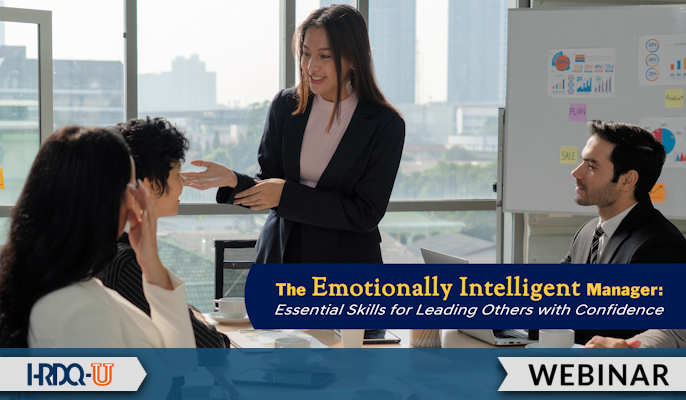According to EQ pioneer Dr. Daniel Goleman, emotional intelligence is our capacity for recognizing our own feelings and those of others, for motivating ourselves, and for managing emotions well in ourselves and others. This may sound easy, but it’s actually quite challenging. In this piece, part one of a two-part series, we’ll explore the first and second dimensions of EQ: self-awareness and self-management.
Self-Awareness
During the course of a typical day, it’s easy to get disconnected from our emotions. That’s because practically from the moment we open our eyes in the morning, most of us are on the go. We’re thinking about our child’s soccer practice or dance recital, the important work project due next week, the in-laws coming to visit this weekend, the vet appointment we have to make for the cat, and dozens of other little obligations and responsibilities that make up our lives. Then there are the texts, phone calls, emails, and meetings we need to attend to, not to mention Facebook, Twitter, Instagram, and all the other social media outlets vying for our limited attention spans. Is it any wonder that we rarely, if ever, stop to take stock of our emotions throughout the day?
While this may not seem like a big deal, not tuning in to our emotions throughout the day can be problematic. Relatively mild emotions like frustration and disappointment, if left to simmer, can quickly evolve into intense emotions such as rage and hostility. That’s what self-awareness is all about—recognizing our emotional state from moment to moment and the impact they’re having on ourselves and those around us. Self-awareness brings attention to what we’re feeling right now; when we’re aware of what we’re feeling, we can choose what actions we want to take. Without self-awareness, however, we’re more vulnerable to emotional outbursts and irrational decisions—with often detrimental consequences.
We can increase our self-awareness by “plugging” back into our emotions. But as mentioned previously, this is not easy. Our days are full of distractions that can prevent us from connecting, even briefly, with our emotional selves. Self-awareness takes discipline and effort, but it can yield rewards that make our lives more manageable.
To increase your self-awareness, try to notice your feelings more frequently throughout the day. For example, before you start your workday, take stock of your emotions. Do you feel energized or melancholy, optimistic or glum? If you feel good, go to it! But if you notice yourself feeling less than ideal, you may need to take action to get yourself into a productive emotional “space.”
In this situation, it can be helpful to name whatever you’re feeling. Doing so brings your emotions into your consciousness—it puts them on your “radar.” For example, if you recognize that you’re anxious before a meeting with your boss, say to yourself: “I am anxious right now.” Similarly, if you receive an email from a colleague that triggers a defensive response, say to yourself, “I am upset right now.” As a 2015 New York Times article titled “The Importance of Naming Your Emotions” states, “Noticing and naming emotions gives us the chance to take a step back and make choices about what to do with them. . . . By naming them out loud, we are effectively taking responsibility for them, making it less likely that they will spill out at the expense of others over the course of a day.”
Here are a few questions to help you increase your self-awareness:
- How “plugged in” are you to your emotions from moment to moment? Do you ever stop to take stock of your emotional state throughout the day?
- What situations make you feel afraid? Sad? Anxious? Angry? Relaxed? Joyful?
- Do you find that strong emotions can “sneak up” on you during periods of stress? How might you become more aware of them before they do damage?
Self-Management
A part of our brain called the amygdala plays a key role here. The amygdala is largely responsible for the perception of emotions and the controlling of aggression. It’s also where memories of events and the emotions we experienced during those events are stored.
Thanks to the amygdala, human beings feel before we think. For example, we may flee from a snake in the weeds before realizing the object is merely a tree branch. In this way, the amygdala acts as a kind of smoke alarm, warning us when it perceives danger or what looks like danger. We can then avoid the danger quickly without first having to think about it. Such an alarm was crucial tens of thousands of years ago when simply surviving day-to-day was a struggle. Back then, our amygdalae didn’t “want” us thinking about the salivating saber-toothed tiger sprinting toward us; it only wanted us to mitigate the threat by either fighting or fleeing. Those who did so lived to tell their friends and neighbors about their frightening encounter. Those who didn’t became lunch.
Today, fortunately, most of us don’t face daily battles for survival, yet the amygdala is still with us, continuously warning of perceived danger in our immediate environment—and that’s a good thing! The problem is that our amygdala doesn’t distinguish effectively between threats to our physical well-being and threats to our emotional well-being. It just sounds the alarm regardless, before we’ve had a chance to think rationally about the severity of the threat or the consequences of our actions. That’s why we often overreact to certain events and only later recognize our reaction was . . . well, not very helpful.
To avoid the so-called “amygdala hijack,” we need a way of preventing our amygdala from firing at inopportune times. What might help us avoid impulsive, potentially destructive reactions to real or perceived stressors? One useful tool is the “pause button.” Scientists believe our emotional brains respond up to 100 times faster than our thinking brains when they perceive a threat. Pausing before reacting—even for just a few seconds—allows your “thinking brain” to catch up to your “emotional brain.” Those precious seconds give you time to consider the implications of your response and choose a more constructive behavior to deal with the situation.
Brief pauses can prevent us from dashing off a terse email to a colleague, making a sarcastic remark to our boss, or screaming at a spouse. Pausing really is your brain’s best friend when you’re feeling stressed! But it takes practice and discipline to pause at those critical moments when thoughtfulness is most needed.
Here are a few questions to help you increase your self-management skills:
- Think about the last time you exhibited poor self-management. Did you lose your temper? Shut down and disengage? What happened?
- What was the outcome when you went down that path?
- If you had a do-over, what would you do differently to get different results? What role might the pause button play in your answer?
In Part Two, we’ll explore the third and fourth dimensions of EQ: social awareness and relationship management.
















